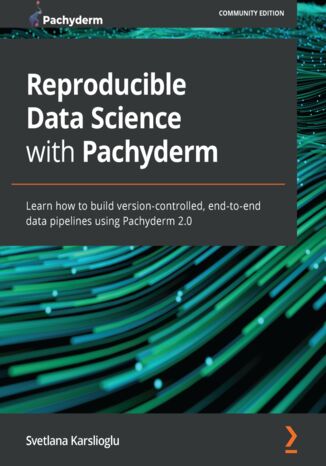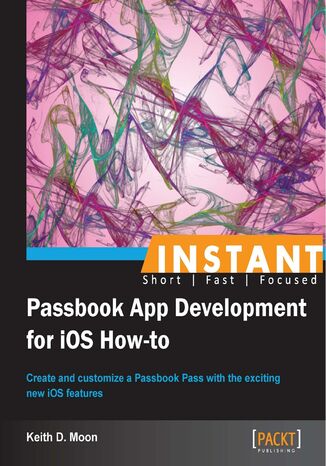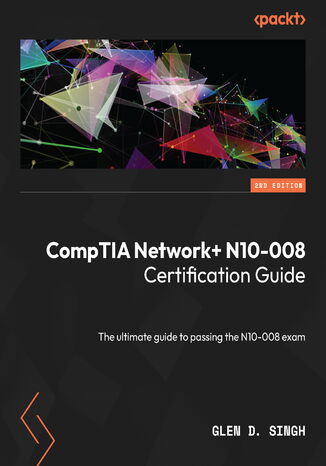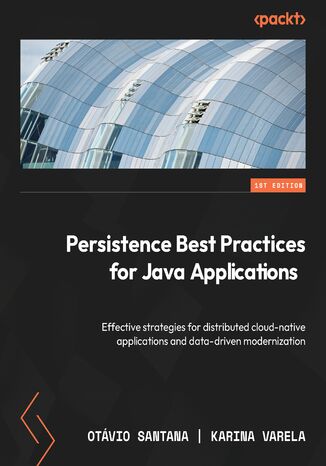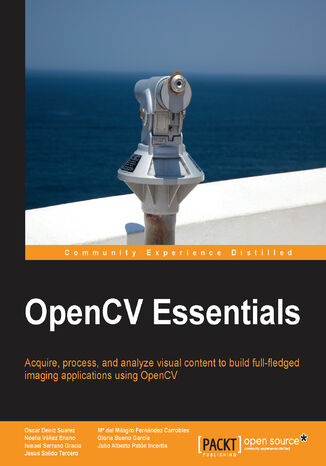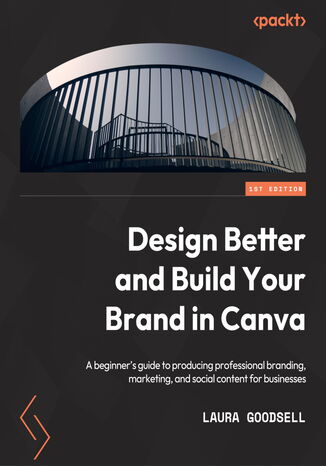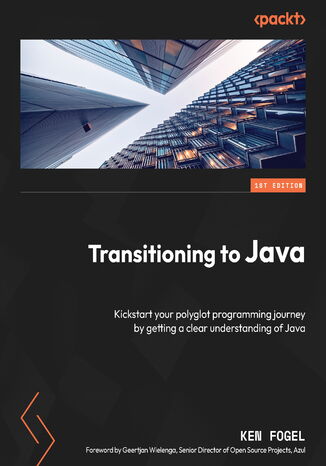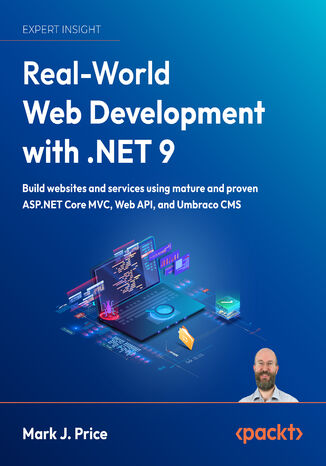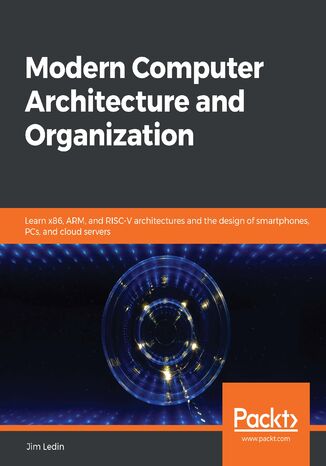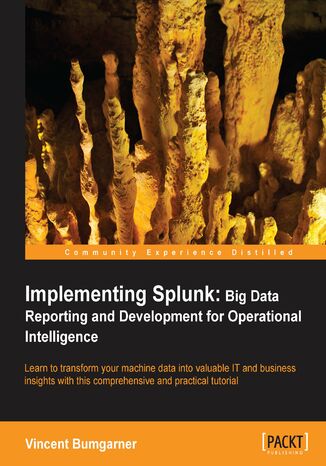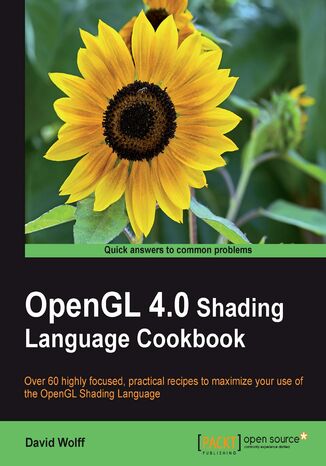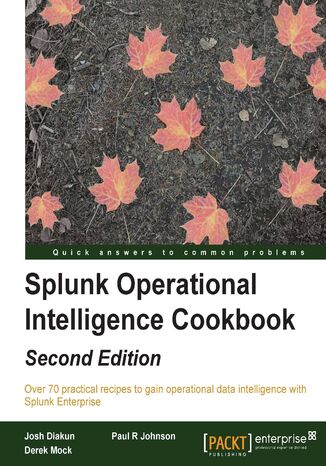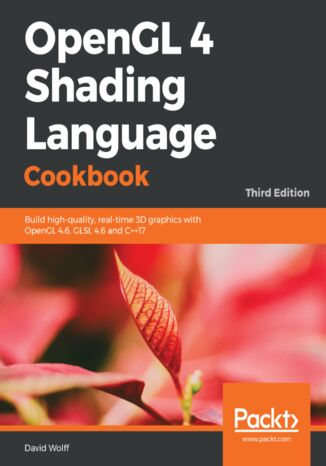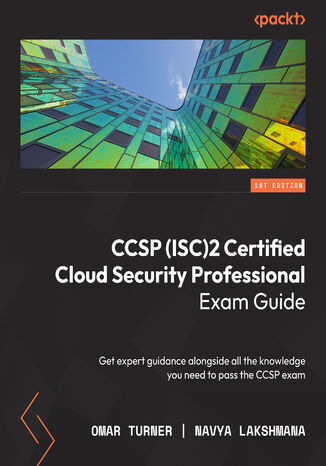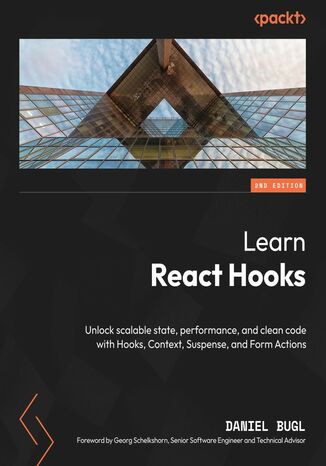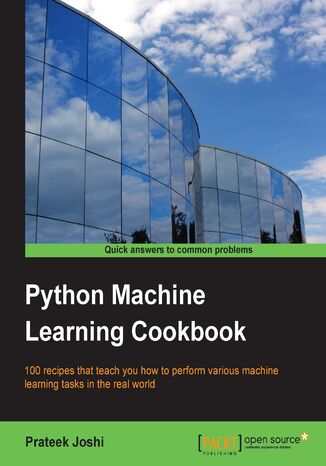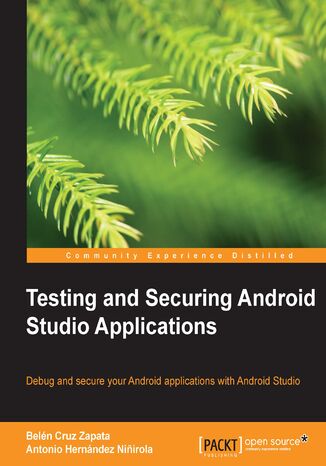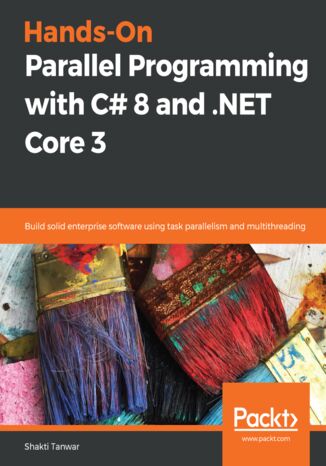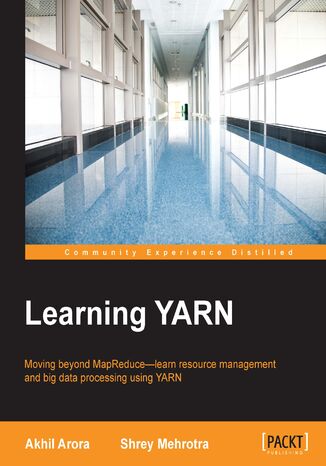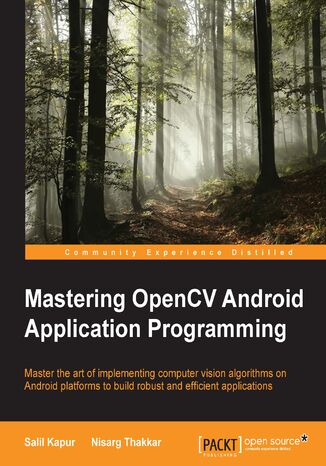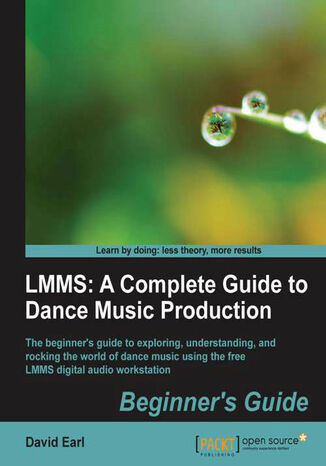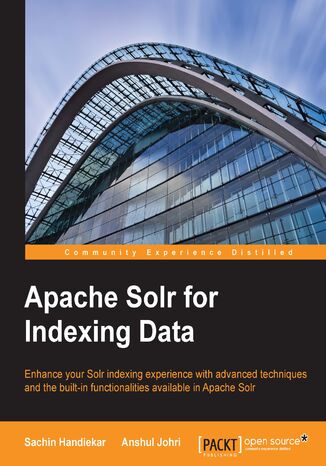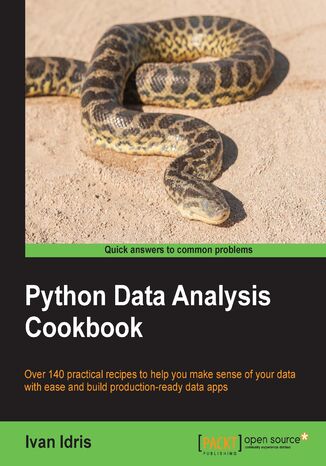Categories
Ebooks
-
Business and economy
- Bitcoin
- Businesswoman
- Coaching
- Controlling
- E-business
- Economy
- Finances
- Stocks and investments
- Personal competence
- Computer in the office
- Communication and negotiation
- Small company
- Marketing
- Motivation
- Multimedia trainings
- Real estate
- Persuasion and NLP
- Taxes
- Social policy
- Guides
- Presentations
- Leadership
- Public Relation
- Reports, analyses
- Secret
- Social Media
- Sales
- Start-up
- Your career
- Management
- Project management
- Human Resources
-
For children
-
For youth
-
Education
-
Encyclopedias, dictionaries
-
E-press
- Architektura i wnętrza
- Health and Safety
- Biznes i Ekonomia
- Home and garden
- E-business
- Ekonomia i finanse
- Esoterecism
- Finances
- Personal finance
- Business
- Photography
- Computer science
- HR & Payroll
- For women
- Computers, Excel
- Accounts
- Culture and literature
- Scientific and academic
- Environmental protection
- Opinion-forming
- Education
- Taxes
- Travelling
- Psychology
- Religion
- Agriculture
- Book and press market
- Transport and Spedition
- Healthand beauty
-
History
-
Computer science
- Office applications
- Data bases
- Bioinformatics
- IT business
- CAD/CAM
- Digital Lifestyle
- DTP
- Electronics
- Digital photography
- Computer graphics
- Games
- Hacking
- Hardware
- IT w ekonomii
- Scientific software package
- School textbooks
- Computer basics
- Programming
- Mobile programming
- Internet servers
- Computer networks
- Start-up
- Operational systems
- Artificial intelligence
- Technology for children
- Webmastering
-
Other
-
Foreign languages
-
Culture and art
-
School reading books
-
Literature
- Antology
- Ballade
- Biographies and autobiographies
- For adults
- Dramas
- Diaries, memoirs, letters
- Epic, epopee
- Essay
- Fantasy and science fiction
- Feuilletons
- Work of fiction
- Humour and satire
- Other
- Classical
- Crime fiction
- Non-fiction
- Fiction
- Mity i legendy
- Nobelists
- Novellas
- Moral
- Okultyzm i magia
- Short stories
- Memoirs
- Travelling
- Narrative poetry
- Poetry
- Politics
- Popular science
- Novel
- Historical novel
- Prose
- Adventure
- Journalism, publicism
- Reportage novels
- Romans i literatura obyczajowa
- Sensational
- Thriller, Horror
- Interviews and memoirs
-
Natural sciences
-
Social sciences
-
School textbooks
-
Popular science and academic
- Archeology
- Bibliotekoznawstwo
- Cinema studies
- Philology
- Polish philology
- Philosophy
- Finanse i bankowość
- Geography
- Economy
- Trade. World economy
- History and archeology
- History of art and architecture
- Cultural studies
- Linguistics
- Literary studies
- Logistics
- Maths
- Medicine
- Humanities
- Pedagogy
- Educational aids
- Popular science
- Other
- Psychology
- Sociology
- Theatre studies
- Theology
- Economic theories and teachings
- Transport i spedycja
- Physical education
- Zarządzanie i marketing
-
Guides
-
Game guides
-
Professional and specialist guides
-
Law
- Health and Safety
- History
- Road Code. Driving license
- Law studies
- Healthcare
- General. Compendium of knowledge
- Academic textbooks
- Other
- Construction and local law
- Civil law
- Financial law
- Economic law
- Economic and trade law
- Criminal law
- Criminal law. Criminal offenses. Criminology
- International law
- International law
- Health care law
- Educational law
- Tax law
- Labor and social security law
- Public, constitutional and administrative law
- Family and Guardianship Code
- agricultural law
- Social law, labour law
- European Union law
- Industry
- Agricultural and environmental
- Dictionaries and encyclopedia
- Public procurement
- Management
-
Tourist guides and travel
- Africa
- Albums
- Southern America
- North and Central America
- Australia, New Zealand, Oceania
- Austria
- Asia
- Balkans
- Middle East
- Bulgary
- China
- Croatia
- The Czech Republic
- Denmark
- Egipt
- Estonia
- Europe
- France
- Mountains
- Greece
- Spain
- Holand
- Iceland
- Lithuania
- Latvia
- Mapy, Plany miast, Atlasy
- Mini travel guides
- Germany
- Norway
- Active travelling
- Poland
- Portugal
- Other
- Przewodniki po hotelach i restauracjach
- Russia
- Romania
- Slovakia
- Slovenia
- Switzerland
- Sweden
- World
- Turkey
- Ukraine
- Hungary
- Great Britain
- Italy
-
Psychology
- Philosophy of life
- Kompetencje psychospołeczne
- Interpersonal communication
- Mindfulness
- General
- Persuasion and NLP
- Academic psychology
- Psychology of soul and mind
- Work psychology
- Relacje i związki
- Parenting and children psychology
- Problem solving
- Intellectual growth
- Secret
- Sexapeal
- Seduction
- Appearance and image
- Philosophy of life
-
Religion
-
Sport, fitness, diets
-
Technology and mechanics
Audiobooks
-
Business and economy
- Bitcoin
- Businesswoman
- Coaching
- Controlling
- E-business
- Economy
- Finances
- Stocks and investments
- Personal competence
- Communication and negotiation
- Small company
- Marketing
- Motivation
- Real estate
- Persuasion and NLP
- Taxes
- Social policy
- Guides
- Presentations
- Leadership
- Public Relation
- Secret
- Social Media
- Sales
- Start-up
- Your career
- Management
- Project management
- Human Resources
-
For children
-
For youth
-
Education
-
Encyclopedias, dictionaries
-
E-press
-
History
-
Computer science
-
Other
-
Foreign languages
-
Culture and art
-
School reading books
-
Literature
- Antology
- Ballade
- Biographies and autobiographies
- For adults
- Dramas
- Diaries, memoirs, letters
- Epic, epopee
- Essay
- Fantasy and science fiction
- Feuilletons
- Work of fiction
- Humour and satire
- Other
- Classical
- Crime fiction
- Non-fiction
- Fiction
- Mity i legendy
- Nobelists
- Novellas
- Moral
- Okultyzm i magia
- Short stories
- Memoirs
- Travelling
- Poetry
- Politics
- Popular science
- Novel
- Historical novel
- Prose
- Adventure
- Journalism, publicism
- Reportage novels
- Romans i literatura obyczajowa
- Sensational
- Thriller, Horror
- Interviews and memoirs
-
Natural sciences
-
Social sciences
-
Popular science and academic
-
Guides
-
Professional and specialist guides
-
Law
-
Tourist guides and travel
-
Psychology
- Philosophy of life
- Interpersonal communication
- Mindfulness
- General
- Persuasion and NLP
- Academic psychology
- Psychology of soul and mind
- Work psychology
- Relacje i związki
- Parenting and children psychology
- Problem solving
- Intellectual growth
- Secret
- Sexapeal
- Seduction
- Appearance and image
- Philosophy of life
-
Religion
-
Sport, fitness, diets
-
Technology and mechanics
Videocourses
-
Data bases
-
Big Data
-
Biznes, ekonomia i marketing
-
Cybersecurity
-
Data Science
-
DevOps
-
For children
-
Electronics
-
Graphics/Video/CAX
-
Games
-
Microsoft Office
-
Development tools
-
Programming
-
Personal growth
-
Computer networks
-
Operational systems
-
Software testing
-
Mobile devices
-
UX/UI
-
Web development
-
Management
Podcasts
Pachyderm is an open source project that enables data scientists to run reproducible data pipelines and scale them to an enterprise level. This book will teach you how to implement Pachyderm to create collaborative data science workflows and reproduce your ML experiments at scale.You’ll begin your journey by exploring the importance of data reproducibility and comparing different data science platforms. Next, you’ll explore how Pachyderm fits into the picture and its significance, followed by learning how to install Pachyderm locally on your computer or a cloud platform of your choice. You’ll then discover the architectural components and Pachyderm's main pipeline principles and concepts. The book demonstrates how to use Pachyderm components to create your first data pipeline and advances to cover common operations involving data, such as uploading data to and from Pachyderm to create more complex pipelines. Based on what you've learned, you'll develop an end-to-end ML workflow, before trying out the hyperparameter tuning technique and the different supported Pachyderm language clients. Finally, you’ll learn how to use a SaaS version of Pachyderm with Pachyderm Notebooks.By the end of this book, you will learn all aspects of running your data pipelines in Pachyderm and manage them on a day-to-day basis.
With iOS 6, Apple introduced the Passbook app as a central digital wallet for all the store cards, coupons, boarding passes, and event tickets that have become a popular feature of apps. The passes in Passbook can be tied to relevant locations and times, providing additional visibility for your brand or service.Instant Passbook App Development for iOS How-to is a step-by-step walkthrough of how to create, customize, deliver, and update a pass for Passbook, the newest and most exciting iOS 6 feature. With sample code and clear instructions you will be guided through the process and helped to avoid the pitfalls.Instant Passbook App Development for iOS How-to helps you understand Apple's Passbook feature, leading you through creating and distributing your first pass. Clear step-by-step instructions, along with sample code and resources, will get you up and running so you can integrate Passbook into your app or service. With this book you will learn how to create, customize, sign, deliver, and update your Passbook pass, with the help of sample code and clear instructions.
This book helps you to easily understand core networking concepts without the need of prior industry experience or knowledge within this fi eld of study. This updated second edition of the CompTIA Network+ N10-008 Certification Guide begins by introducing you to the core fundamentals of networking technologies and concepts, before progressing to intermediate and advanced topics using a student-centric approach.You’ll explore best practices for designing and implementing a resilient and scalable network infrastructure to support modern applications and services. Additionally, you’ll learn network security concepts and technologies to effectively secure organizations from cyber attacks and threats. The book also shows you how to efficiently discover and resolve networking issues using common troubleshooting techniques.By the end of this book, you’ll have gained sufficient knowledge to efficiently design, implement, and maintain a network infrastructure as a successful network professional within the industry. You’ll also have gained knowledge of all the official CompTIA Network+ N10-008 exam objectives, networking technologies, and how to apply your skills in the real world.
Having a solid software architecture breathes life into tech solutions. In the early stages of an application’s development, critical decisions need to be made, such as whether to go for microservices, a monolithic architecture, the event-driven approach, or containerization. In Java contexts, frameworks and runtimes also need to be defi ned. But one aspect is often overlooked – the persistence layer – which plays a vital role similar to that of data stores in modern cloud-native solutions. To optimize applications and data stores, a holistic understanding of best practices, technologies, and existing approaches is crucial.This book presents well-established patterns and standards that can be used in Java solutions, with valuable insights into the pros and cons of trending technologies and frameworks used in cloud-native microservices, alongside good Java coding practices. As you progress, you’ll confront the challenges of cloud adoption head-on, particularly those tied to the growing need for cost reduction through stack modernization. Within these pages, you’ll discover application modernization strategies and learn how enterprise data integration patterns and event-driven architectures enable smooth modernization processes with low-to-zero impact on the existing legacy stack.
Laura Goodsell , Janine Friston, Heather Palfreyman
If you're constantly frustrated by how long it takes to create a design in Canva, then you've come to the right place. This book will get you up and running quickly with creating professional branded graphics in Canva.You’ll learn how to set up a Canva account, both free and pro and create a brand kit while understanding the importance of branding. Next, you’ll discover all the features and tools as well as how to put everything together to build a brand you love and graphics that work for your business. As you progress, the chapters will show you how to organize your account, create presentations, use videos and animation within your marketing materials and more.By the end of this book, you’ll have a solid understanding of what Canva is and what it does and be able to confidently and easily create a branded design from scratch.
Geertjan Wielenga, Ken Fogel, Geertjan Wielenga
This comprehensive guide will help non-Java developers already using different languages transition from their current language to all things Java. The chapters are designed in a way that re-enforces a developer’s existing knowledge of object-oriented methodologies as they apply to Java.This book has been divided into four sections, with each section touching upon different aspects that’ll enable your effective transition. The first section helps you get to grips with the Java development environment and the Maven build tool for modern Java applications. In the second section, you’ll learn about Java language fundamentals, along with exploring object-oriented programming (OOP) methodologies and functional programming and discovering how to implement software design patterns in Java. The third section shows you how to code in Java on different platforms and helps you get familiar with the challenges faced on these platforms. In the fourth section, you’ll find out how you can manage and package your Java code.By the end of this Java programming book, you’ll have learned the core concepts of Java that’ll help you successfully transition from a different language to Java.
Real-World Web Development with .NET 9 equips you to build professional websites and services using proven technologies like ASP.NET Core MVC, Web API, and OData—trusted by organizations for delivering robust web applications.You’ll learn to design and build efficient web applications with ASP.NET Core MVC, creating well-structured, maintainable code that follows industry best practices. From there, you’ll focus on Web API, building RESTful services that are both secure and scalable. Along the way, you’ll also explore testing, authentication, and containerization for deployment, ensuring that your solutions are fully production ready.In the final part of the book, you will be introduced to Umbraco CMS, a popular content management system for .NET. By mastering this tool, you’ll learn how to empower users to manage website content independently.By the end of this book, you'll not only have a solid grasp of controller-based development but also the practical know-how to build dynamic, content-driven websites using a popular .NET CMS.
On the other side of the table - Plan and execute excellent interviews to get the right person for the jobAs an experienced managerial behavior consultant, Stephen Walker, co-founder of Motivation Matters, is passionate about helping to improve organizational performance in businesses. In this quick and practical book, Stephen takes you through the entire process of an interview, from getting to know the specifications of the role, to discussing the results and reaching a final decision with other stakeholders. Being able to build a strong team around you is essential to a business' success and to do this you need to interview effectively and confidently. This is not only essential for prospective employees; it is also an important managerial skill.Walking you through the interview process from the initial planning and preparation to meeting and greeting the interviewee, this book provides you with everything you need to know to hire for success. With templates, examples, and tips on how to incorporate cutting edge techniques such as NLP into your interviewing technique, The Manager’s Guide to Conducting Your First Interview, is the perfect companion to managers new and old, giving you a fresh perspective on effective interviewing.
Are you a software developer, systems designer, or computer architecture student looking for a methodical introduction to digital device architectures but overwhelmed by their complexity? This book will help you to learn how modern computer systems work, from the lowest level of transistor switching to the macro view of collaborating multiprocessor servers. You'll gain unique insights into the internal behavior of processors that execute the code developed in high-level languages and enable you to design more efficient and scalable software systems.The book will teach you the fundamentals of computer systems including transistors, logic gates, sequential logic, and instruction operations. You will learn details of modern processor architectures and instruction sets including x86, x64, ARM, and RISC-V. You will see how to implement a RISC-V processor in a low-cost FPGA board and how to write a quantum computing program and run it on an actual quantum computer. By the end of this book, you will have a thorough understanding of modern processor and computer architectures and the future directions these architectures are likely to take.
Splunk is a data collection, indexing, and visualization engine for operational intelligence. It's a powerful and versatile search and analysis engine that lets you investigate, troubleshoot, monitor, alert, and report on everything that's happening in your entire IT infrastructure from one location in real time. Splunk collects, indexes, and harnesses all the fast moving machine data generated by our applications, servers, and devices - physical, virtual, and in the cloud.Given a mountain of machine data, this book shows you exactly how to learn to use Splunk to make something useful from it. Depending on your needs, you can learn to search, transform, and display data, or learn to administer your Splunk installation, large or small. Implementing Splunk: Big Data Reporting and Development for Operational Intelligence will help you get your job done faster, whether you read from the beginning or jump to what you need to know today. New and experienced users alike will find nuggets of wisdom throughout.This book provides you with valuable examples and step-by-step instructions, showing you how to take advantage of everything Splunk has to offer you, to make the most out of your machine data.Implementing Splunk: Big Data Reporting and Development for Operational Intelligence takes you on a journey right from inception to a fully functioning implementation of Splunk. Using a real-world data walkthrough, you'll be shown how to search effectively, create fields, build dashboards, reports, and package apps, manage your indexes, integrate into the enterprise, and extend Splunk. This practical implementation guide equips you with high-level knowledge for configuring, deploying, extending, and integrating Splunk. Depending on the goal and skills of the reader, enough topics are covered to get you on your way to dashboard guru, app developer, or enterprise administrator. This book uses examples curates reference, and sage advice to help you make the most of this incredibly powerful tool.
The OpenGL Shading Language (GLSL) is a programming language used for customizing parts of the OpenGL graphics pipeline that were formerly fixed-function, and are executed directly on the GPU. It provides programmers with unprecedented flexibility for implementing effects and optimizations utilizing the power of modern GPUs. With version 4.0, the language has been further refined to provide programmers with greater flexibility, and additional features have been added such as an entirely new stage called the tessellation shader.The OpenGL Shading Language 4.0 Cookbook provides easy-to-follow examples that first walk you through the theory and background behind each technique then go on to provide and explain the GLSL and OpenGL code needed to implement it. Beginning level through to advanced techniques are presented including topics such as texturing, screen-space techniques, lighting, shading, tessellation shaders, geometry shaders, and shadows.The OpenGL Shading Language 4.0 Cookbook is a practical guide that takes you from the basics of programming with GLSL 4.0 and OpenGL 4.0, through basic lighting and shading techniques, to more advanced techniques and effects. It presents techniques for producing basic lighting and shading effects; examples that demonstrate how to make use of textures for a wide variety of effects and as part of other techniques; examples of screen-space techniques, shadowing, tessellation and geometry shaders, noise, and animation.The OpenGL Shading Language 4.0 Cookbook provides examples of modern shading techniques that can be used as a starting point for programmers to expand upon to produce modern, interactive, 3D computer graphics applications.
Josh Diakun, Derek Mock, Paul R. Johnson
Splunk makes it easy for you to take control of your data, and with Splunk Operational Cookbook, you can be confident that you are taking advantage of the Big Data revolution and driving your business with the cutting edge of operational intelligence and business analytics. With more than 70 recipes that demonstrate all of Splunk’s features, not only will you find quick solutions to common problems, but you’ll also learn a wide range of strategies and uncover new ideas that will make you rethink what operational intelligence means to you and your organization.You’ll discover recipes on data processing, searching and reporting, dashboards, and visualizations to make data shareable, communicable, and most importantly meaningful. You’ll also find step-by-step demonstrations that walk you through building an operational intelligence application containing vital features essential to understanding data and to help you successfully integrate a data-driven way of thinking in your organization.Throughout the book, you’ll dive deeper into Splunk, explore data models and pivots to extend your intelligence capabilities, and perform advanced searching to explore your data in even more sophisticated ways. Splunk is changing the business landscape, so make sure you’re taking advantage of it.
OpenGL 4 Shading Language Cookbook, Third Edition provides easy-to-follow recipes that first walk you through the theory and background behind each technique, and then proceed to showcase and explain the GLSL and OpenGL code needed to implement them.The book begins by familiarizing you with beginner-level topics such as compiling and linking shader programs, saving and loading shader binaries (including SPIR-V), and using an OpenGL function loader library. We then proceed to cover basic lighting and shading effects. After that, you'll learn to use textures, produce shadows, and use geometry and tessellation shaders. Topics such as particle systems, screen-space ambient occlusion, deferred rendering, depth-based tessellation, and physically based rendering will help you tackle advanced topics.OpenGL 4 Shading Language Cookbook, Third Edition also covers advanced topics such as shadow techniques (including the two of the most common techniques: shadow maps and shadow volumes). You will learn how to use noise in shaders and how to use compute shaders.The book provides examples of modern shading techniques that can be used as a starting point for programmers to expand upon to produce modern, interactive, 3D computer-graphics applications.
Omar A. Turner, Navya Lakshmana
Preparing for the Certified Cloud Security Professional (CCSP) exam can be challenging, as it covers a wide array of topics essential for advancing a cybersecurity professional’s career by validating their technical skills. To prepare for the CCSP exam, you need a resource that not only covers all the exam objectives but also helps you prepare for the format and structure of the exam.Written by two seasoned cybersecurity professionals with a collective experience of hundreds of hours training CCSP bootcamps, this CCSP study guide reflects the journey you’d undertake in such training sessions.The chapters are packed with up-to-date information necessary to pass the (ISC)2 CCSP exam. Additionally, to boost your confidence, the book provides self-assessment questions, exam tips, and mock exams with detailed answer explanations. You’ll be able to deepen your understanding using illustrative explanations that briefly review key points.As you progress, you’ll delve into advanced technical aspects of cloud domain security, such as application security, design, managing and securing data, and infrastructure in the cloud using best practices and legal policies and procedures.By the end of this guide, you’ll be ready to breeze through the exam and tackle real-world cloud security challenges with ease.
Daniel Bugl, Georg Schelkshorn
React Hooks allow you to easily encapsulate, reuse, and refactor logic with the same level of simplicity that components bring to user interface organization.In this second edition, React expert and author of many popular React books, Daniel Bugl guides you through the full spectrum of React Hooks, and teaches you how to handle forms, routing, and data fetching in modern React development. This edition is fully updated to React 19, with a revamped structure, expanded real-world use cases, and coverage of all newly introduced Hooks.Starting with the fundamentals, you'll gain a deep understanding of how Hooks work under the hood and how to apply Hooks patterns efficiently. The chapters guide you through using State, Reducer, and Effect Hooks to manage application state, side effects, and complex logic for building your first Hook-based app. You'll utilize Suspense and Context APIs for streamlined data fetching and state management, master Form Actions for handling submissions, and implement routing with Hooks. You’ll also create custom Hooks for advanced functionality and write tests for reliability. Finally, you’ll learn how to refactor an existing app with class components into modern Hooks architecture.By the end of this React book, you'll be well-equipped to use React Hooks to modernize and optimize your React projects.
Machine learning is becoming increasingly pervasive in the modern data-driven world. It is used extensively across many fields such as search engines, robotics, self-driving cars, and more. With this book, you will learn how to perform various machine learning tasks in different environments. We’ll start by exploring a range of real-life scenarios where machine learning can be used, and look at various building blocks. Throughout the book, you’ll use a wide variety of machine learning algorithms to solve real-world problems and use Python to implement these algorithms. You’ll discover how to deal with various types of data and explore the differences between machine learning paradigms such as supervised and unsupervised learning. We also cover a range of regression techniques, classification algorithms, predictive modeling, data visualization techniques, recommendation engines, and more with the help of real-world examples.
In today’s world, every CPU has a multi-core processor. However, unless your application has implemented parallel programming, it will fail to utilize the hardware’s full processing capacity. This book will show you how to write modern software on the optimized and high-performing .NET Core 3 framework using C# 8.Hands-On Parallel Programming with C# 8 and .NET Core 3 covers how to build multithreaded, concurrent, and optimized applications that harness the power of multi-core processors. Once you’ve understood the fundamentals of threading and concurrency, you’ll gain insights into the data structure in .NET Core that supports parallelism. The book will then help you perform asynchronous programming in C# and diagnose and debug parallel code effectively. You’ll also get to grips with the new Kestrel server and understand the difference between the IIS and Kestrel operating models. Finally, you’ll learn best practices such as test-driven development, and run unit tests on your parallel code.By the end of the book, you’ll have developed a deep understanding of the core concepts of concurrency and asynchrony to create responsive applications that are not CPU-intensive.
Akhil Arora, Shrey Mehrotra, Shreyank Gupta
Today enterprises generate huge volumes of data. In order to provide effective services and to make smarter and more intelligent decisions from these huge volumes of data, enterprises use big-data analytics. In recent years, Hadoop has been used for massive data storage and efficient distributed processing of data. The Yet Another Resource Negotiator (YARN) framework solves the design problems related to resource management faced by the Hadoop 1.x framework by providing a more scalable, efficient, flexible, and highly available resource management framework for distributed data processing.This book starts with an overview of the YARN features and explains how YARN provides a business solution for growing big data needs. You will learn to provision and manage single, as well as multi-node, Hadoop-YARN clusters in the easiest way. You will walk through the YARN administration, life cycle management, application execution, REST APIs, schedulers, security framework and so on. You will gain insights about the YARN components and features such as ResourceManager, NodeManager, ApplicationMaster, Container, Timeline Server, High Availability, Resource Localisation and so on.The book explains Hadoop-YARN commands and the configurations of components and explores topics such as High Availability, Resource Localization and Log aggregation. You will then be ready to develop your own ApplicationMaster and execute it over a Hadoop-YARN cluster.Towards the end of the book, you will learn about the security architecture and integration of YARN with big data technologies like Spark and Storm. This book promises conceptual as well as practical knowledge of resource management using YARN.
LMMS: A Complete Guide to Dance Music Production
You've scoured the forums, watched the tutorial videos, and done everything you can to learn the secrets of the art of making dance music. Everyone is saying something different about how to get into producing your own projects. This book will help connect the dots and lay a solid foundation of knowledge so you can get beats banging out of LMMS.This book will show you the ins and outs of making Dance music with LMMS. Do you make house, trance, techno or down-tempo? After this book you'll be able to make a song that stands out from the masses, using time honoured tricks of the trade. From inception to conception, this book will help give you a workflow to channel your muse using LMMS.Readers will be given a brief lesson on the best of dance music history, then learn how to recreate it using the Open Source digital workstation - LMMS. The reader will be guided through creating a project from start to finish. By the end of this book, the reader will know how to create a full dance track in LMMS and make it ready for distribution.Along the way, readers will take short stops into music theory, song arranging, recording, and other related information to give them a good foundation for making dance music with depth as well as power. Reading LMMS: A Complete Guide to Dance Music Production will not just teach the reader how to use LMMS, but also how good dance music is crafted. The reader will not just be taught how to make decisions in LMMS, but when and why. After devouring this book, the reader should be able to focus on his or her creativity, with LMMS as a co-conspirator in the process of making great dance music.
Anshul Johri, Sachin Handiekar
Apache Solr is a widely used, open source enterprise search server that delivers powerful indexing and searching features. These features help fetch relevant information from various sources and documentation. Solr also combines with other open source tools such as Apache Tika and Apache Nutch to provide more powerful features.This fast-paced guide starts by helping you set up Solr and get acquainted with its basic building blocks, to give you a better understanding of Solr indexing. You’ll quickly move on to indexing text and boosting the indexing time. Next, you’ll focus on basic indexing techniques, various index handlers designed to modify documents, and indexing a structured data source through Data Import Handler.Moving on, you will learn techniques to perform real-time indexing and atomic updates, as well as more advanced indexing techniques such as de-duplication. Later on, we’ll help you set up a cluster of Solr servers that combine fault tolerance and high availability. You will also gain insights into working scenarios of different aspects of Solr and how to use Solr with e-commerce data.By the end of the book, you will be competent and confident working with indexing and will have a good knowledge base to efficiently program elements.
Python Data Analysis Cookbook. Clean, scrape, analyze, and visualize data with the power of Python!
Data analysis is a rapidly evolving field and Python is a multi-paradigm programming language suitable for object-oriented application development and functional design patterns. As Python offers a range of tools and libraries for all purposes, it has slowly evolved as the primary language for data science, including topics on: data analysis, visualization, and machine learning.Python Data Analysis Cookbook focuses on reproducibility and creating production-ready systems. You will start with recipes that set the foundation for data analysis with libraries such as matplotlib, NumPy, and pandas. You will learn to create visualizations by choosing color maps and palettes then dive into statistical data analysis using distribution algorithms and correlations. You’ll then help you find your way around different data and numerical problems, get to grips with Spark and HDFS, and then set up migration scripts for web mining.In this book, you will dive deeper into recipes on spectral analysis, smoothing, and bootstrapping methods. Moving on, you will learn to rank stocks and check market efficiency, then work with metrics and clusters. You will achieve parallelism to improve system performance by using multiple threads and speeding up your code.By the end of the book, you will be capable of handling various data analysis techniques in Python and devising solutions for problem scenarios.

